 Petzlover
Petzlover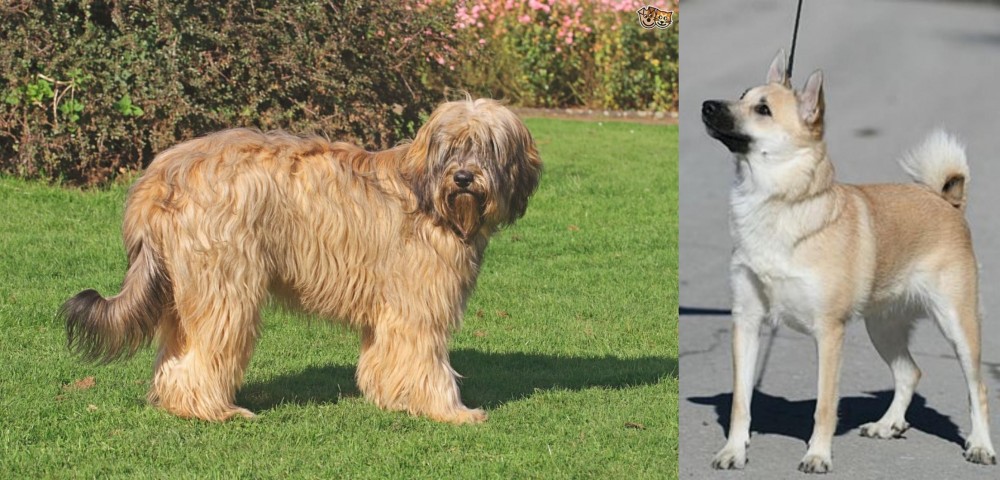 Catalan Sheepdog is originated from Spain but Norwegian Buhund is originated from Norway. Catalan Sheepdog may grow 8 cm / 4 inches higher than Norwegian Buhund. Catalan Sheepdog may weigh 7 kg / 16 pounds more than Norwegian Buhund. Both Catalan Sheepdog and Norwegian Buhund has almost same life span. Both Catalan Sheepdog and Norwegian Buhund has almost same litter size. Both Catalan Sheepdog and Norwegian Buhund requires Moderate Maintenance.
Catalan Sheepdog is originated from Spain but Norwegian Buhund is originated from Norway. Catalan Sheepdog may grow 8 cm / 4 inches higher than Norwegian Buhund. Catalan Sheepdog may weigh 7 kg / 16 pounds more than Norwegian Buhund. Both Catalan Sheepdog and Norwegian Buhund has almost same life span. Both Catalan Sheepdog and Norwegian Buhund has almost same litter size. Both Catalan Sheepdog and Norwegian Buhund requires Moderate Maintenance.
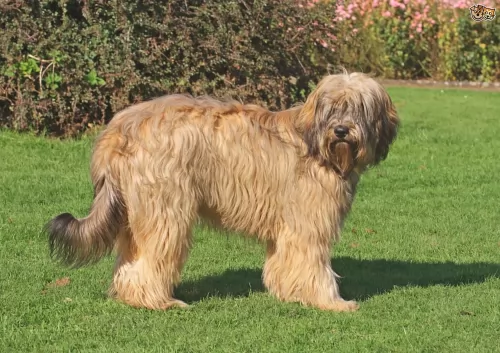 The Catalan Sheepdog, known also as the Gos d’Atura, hails from Catalonia, Spain. It is believed that the dog is related to the Portuguese- and Pyrenean Sheepdogs.
The Catalan Sheepdog, known also as the Gos d’Atura, hails from Catalonia, Spain. It is believed that the dog is related to the Portuguese- and Pyrenean Sheepdogs.
The standard for this breed was formulated in 1929. The sheepdog developed during Roman Empire times between 200 and 100 BC already, being used as livestock guard dogs. With the breed dwindling in the 1970s, Catalonian Sheepdog lovers started promoting it, but it remains a rare breed.
 The Norwegian Buhund is a spitz type dog belonging to the herding group of dogs. The dog is related to the Icelandic Sheepdog and the Jämthund.
The Norwegian Buhund is a spitz type dog belonging to the herding group of dogs. The dog is related to the Icelandic Sheepdog and the Jämthund.
This dog breed dates back thousands of years to Nordic Viking times. For centuries these dogs have served working dogs, being herders as well as guardians of flock. Even today in remote parts of Norway, you’ll still find this dog doing farm work.
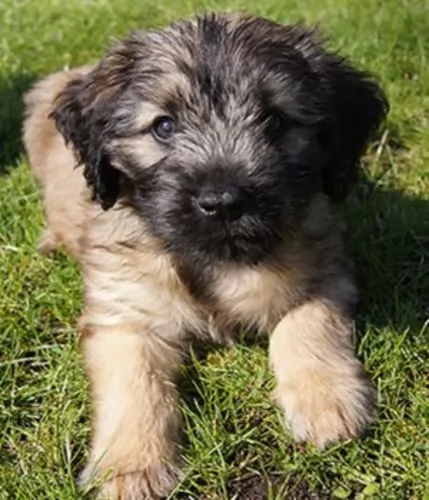 The Catalan is a medium sized dog but gives the impression of being bigger than he actually is. He stands from 45 – 55cm in height and weighs between 20 to 25kg.
The Catalan is a medium sized dog but gives the impression of being bigger than he actually is. He stands from 45 – 55cm in height and weighs between 20 to 25kg.
This breed also has double dew claws on the hind feet. He has a long coat which is slightly wavy and available in different shades such as fawn to brownish to dark grey to black. He has floppy, feathery ears and a fairly long, feathery tail. He has quite a bit of hair on he face too, so you’ll notice a beard, moustache as well as hair which covers the eyes somewhat.
Brave and courageous, the Catalan Sheepdog is also intelligent, active and hardy. He has a round face with a friendly, amicable expression. He is totally pleasant and sweet natured. However, in his role as guardian of sheep he took his role seriously, forming a strong relationship with both shepherd and sheep.
He is wary of strangers. Early socialization and training is always important, and while he makes a wonderful family pet, this training and socialization makes him more relaxed and obedient and he gets on well with children in the home as well as with other pets. While he is a placid, docile and gentle pet, he is also looked upon as a protector, and will defend his family.
 The Norwegian Buhund stands at 41 to 47cm in height both male and female. He is a medium sized dog and weighs between 12 and 18kg.
The Norwegian Buhund stands at 41 to 47cm in height both male and female. He is a medium sized dog and weighs between 12 and 18kg.
Known as a herding dog, he is described as being deep chested with a well built, compact body, erect ears and a tail which curves over the back. The head of the dog is wedge-shaped and he has a bright, intelligent look to him.
The coat is essentially a wheaten color but it can be other shades such as a pale cream color to bright orange and sometimes even black. The coat is short to medium in length and he sheds moderately with some seasonal shedding as well.
Fun loving, friendly and social, the Norwegian Buhund is also an active dog who will always be pleading with you for a game or walkies. His pleading brown eyes will hopefully soften your heart towards him so that you give him a ball game or a run in the park. It is why this dog breed gets on well with children – he loves to be playing games with them.
They are such lovable dogs, wanting to spend time with their human family and always ready with a doggy kiss. They want to protect the ones they love and this makes them good watchdogs too, being wary around strangers. He is highly intelligent and will go through training and socialization with ease.
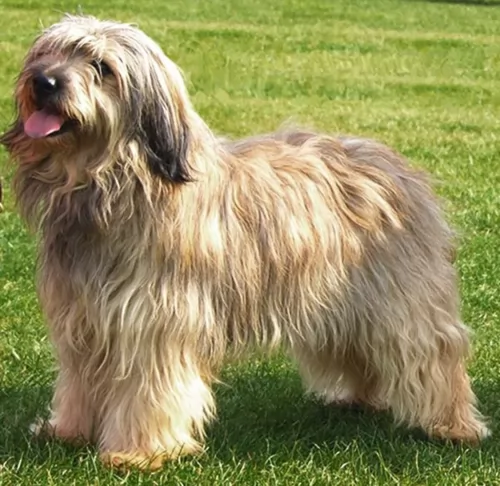 The Catalan Sheepdog is such an amicable character – he is going to make an awesome pet. He is an intelligent and obedient dog and is easily trained.
The Catalan Sheepdog is such an amicable character – he is going to make an awesome pet. He is an intelligent and obedient dog and is easily trained.
He has been used for guarding- and herding work and as a family pet makes a excellent guard dog as well. Capable of being gentle too, he is everything his human family wants him to be and just becomes a regular member of the family.
 He will need exercise on a daily basis. They are lovable dogs and are affectionate towards children in the home. They form strong bonds with their human family.
He will need exercise on a daily basis. They are lovable dogs and are affectionate towards children in the home. They form strong bonds with their human family.
He is a strong willed dog, and will require training and socialization. As a working and herding dog, he wants to be busy, and is perhaps best suited to life in the suburbs or countryside as opposed to living in the city.
He makes an awesome companion dog and he wants to please his human family and be an active part of their lives.
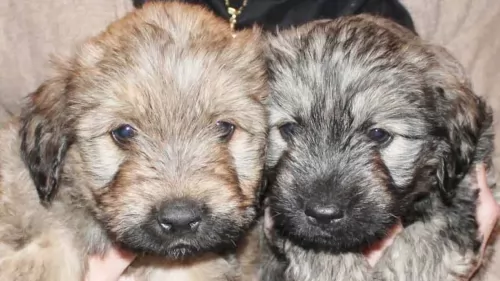 The Catalan Sheepdog is a fairly healthy breed and has a life expectancy of 12, 13 or 14 years. Nonetheless you will still need to watch out with common dog ailments with him, particularly hip dysplasia.
The Catalan Sheepdog is a fairly healthy breed and has a life expectancy of 12, 13 or 14 years. Nonetheless you will still need to watch out with common dog ailments with him, particularly hip dysplasia.
This is a joint and hip disease which can start with symptoms from 6 months of age already. Your dog will be hesitant to play and jump, doesn’t like to go upstairs, tires easily during a walk and develops a hop-like way to walk. You’ll notice that when he lies down, he battles to- or is reluctant to get up again.
X-rays may be required to confirm the diagnosis of hip dysplasia. There are different treatment options, all with the wellbeing of your pet in mind. You don’t want him to have a life of pain and lameness.
 Provide your Norwegian Buhund with the right care and he can get to 15 years of age. Hip dysplasia is always an issue with dogs and you should be very wary of it as it can cause lameness and pain.
Provide your Norwegian Buhund with the right care and he can get to 15 years of age. Hip dysplasia is always an issue with dogs and you should be very wary of it as it can cause lameness and pain.
Cataracts is another illness that you want to be aware of. Although not painful, this eye aliment can lead to blindness.
Look out for other common dog illnesses such as bloat, skin allergies and cancer.
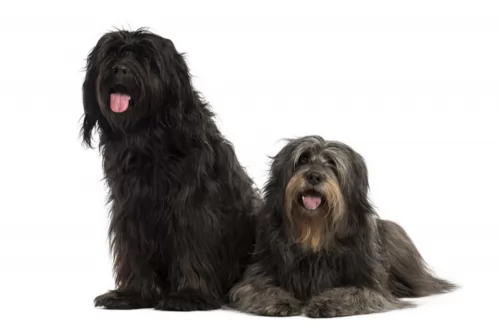 The Catalan Sheepdog is a working breed, so he is going to need plenty of exercise. While he adapts easily to city- or country life, it will be to his benefit to have a garden to romp in. You will still need to take him for walks and play ball- and rope games with him. This will prevent boredom and destructive behavior from him.
The Catalan Sheepdog is a working breed, so he is going to need plenty of exercise. While he adapts easily to city- or country life, it will be to his benefit to have a garden to romp in. You will still need to take him for walks and play ball- and rope games with him. This will prevent boredom and destructive behavior from him.
The Catalan Sheepdog has long hair so he will need to be brushed twice a week to avoid matting. This will help to remove loose hair too, but also distribute natural oils through his coat, keeping his hair and skin healthy and free from skin rashes and itchiness.
This brushing ensures other benefits as you can simultaneously check him for parasites such as fleas and ticks.
If you feed him commercial dog food, make sure its a high quality one. He is an active breed so will require high protein. Give him some homemade rice, vegetables and meat, and include raw meat in his food from time to time too. Always ensure that there is fresh, cool water constantly within reach.
 You’re going to need to provide this dog of yours with activities that stimulate him physically and mentally. The Norwegian Buhund isn’t a couch-potato type of dog and he doesn’t do well with just lying around. Take him on walks and hikes, throw balls or frisbees for him and buy him some toys that can entertain him. You want to avoid him barking and digging from sheer boredom.
You’re going to need to provide this dog of yours with activities that stimulate him physically and mentally. The Norwegian Buhund isn’t a couch-potato type of dog and he doesn’t do well with just lying around. Take him on walks and hikes, throw balls or frisbees for him and buy him some toys that can entertain him. You want to avoid him barking and digging from sheer boredom.
Like all other spitz-breed dogs, the Norwegian Buhund has a thick double coat, and because he sheds moderately, you will need to brush him at least twice a week. Check simultaneously for ticks and fleas.
Check your pets eye and ears for infection and check his teeth. A rotting tooth at the back of his mouth can be the cause of a lot of pain and problems throughout the body. Keep his nails clipped as well so as to prevent them hooking onto things.
Provide your pet with a nice warm, dry, comfortable place to sleep. If he goes outside, make sure he has a place to lie in the shade or in the sun.
Take your pet to the vet when he appears to be lethargic and sick. Remember to keep his vaccines up to date.
Feed your pet food which is known for its nutritional value. Home made food is a real treat for your pet, but high quality commercially manufactured food can be good and convenient too.
Dogs love simple, consistent diets which don’t upset their stomachs. Boiled chicken, brown rice or pasta, and some vegetables such as sweet potatoes, spinach and carrots chopped up into his food from time to time can be superbly nutritious for your pet. Try and also include a little bit of raw meat occasionally. Always have a bowl of fresh, cool water available to your pet.